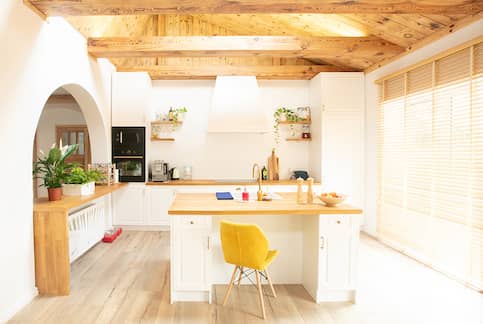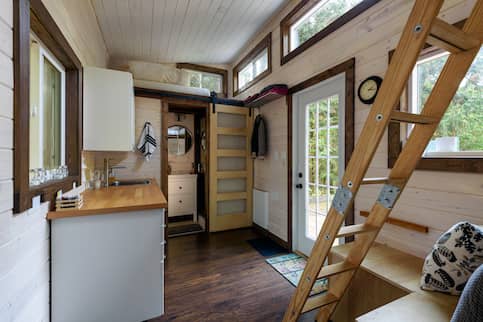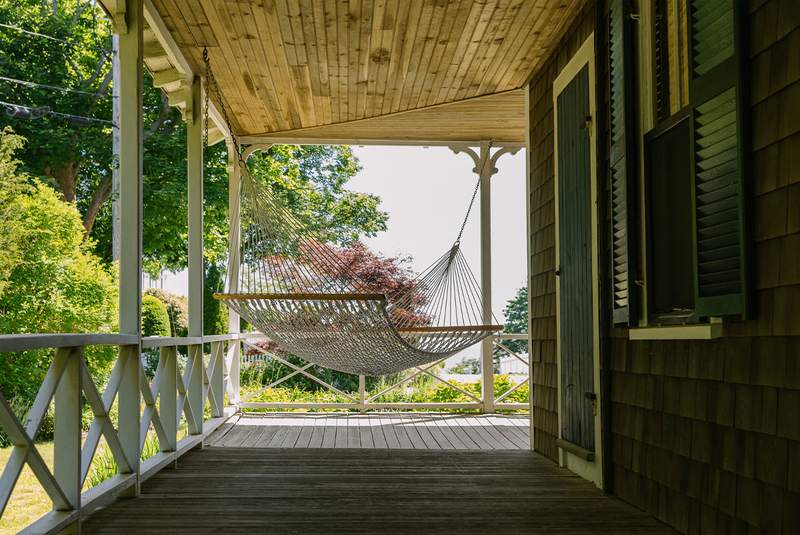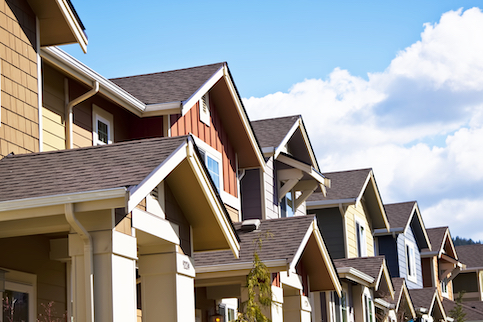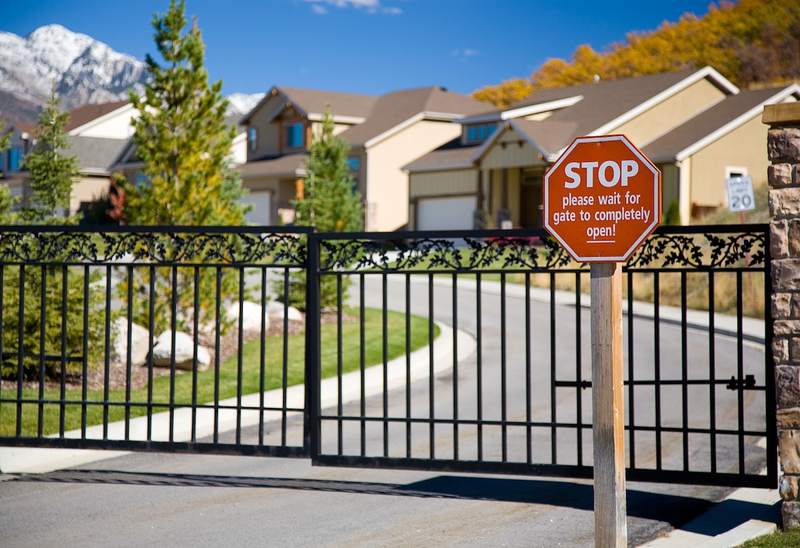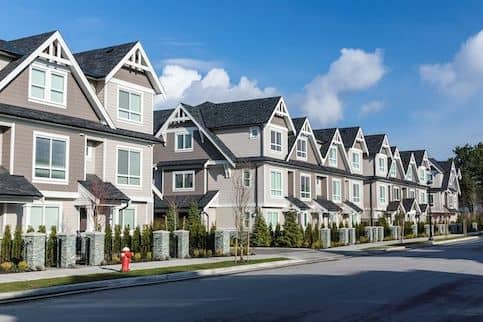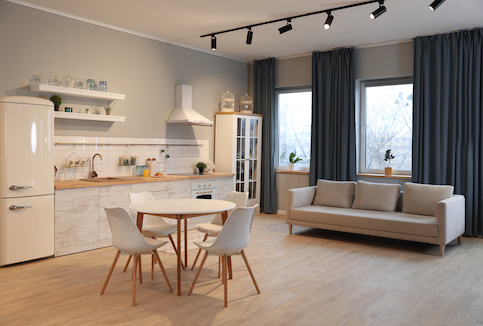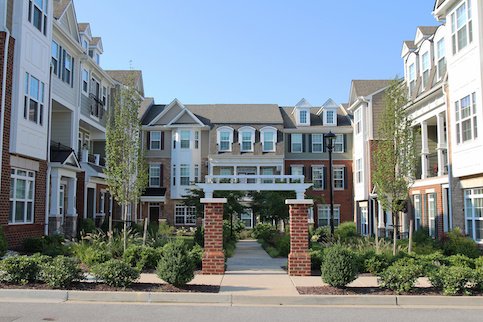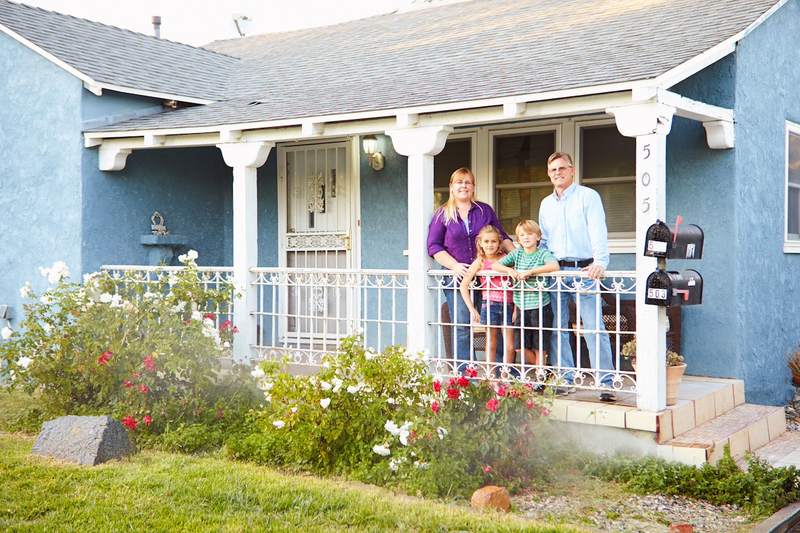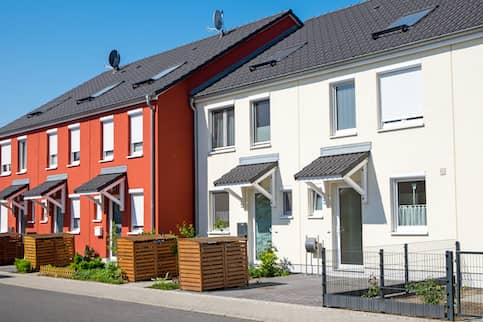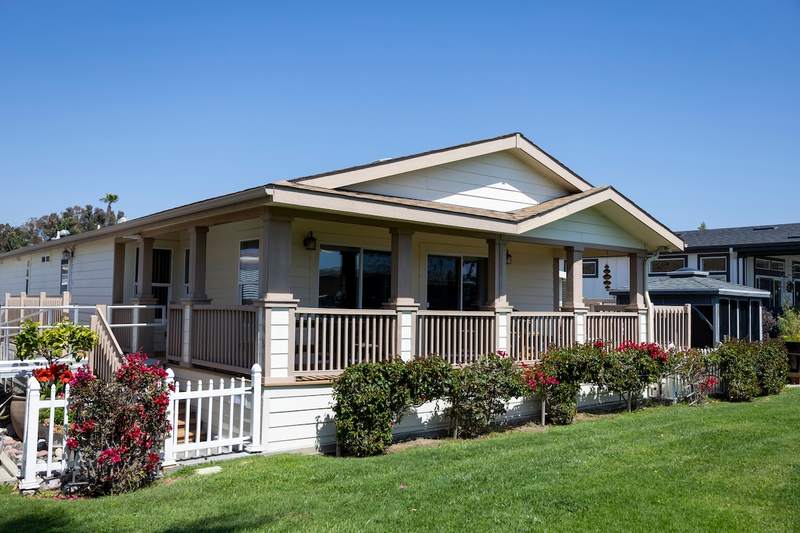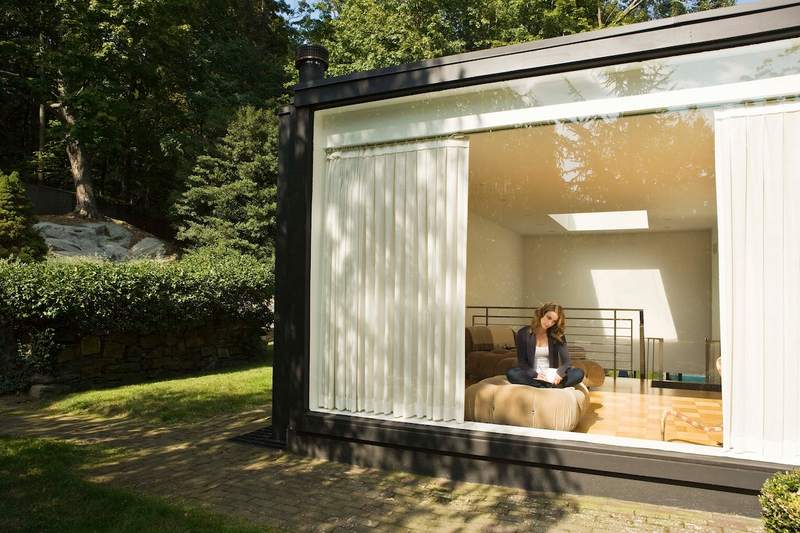Home is where we make memories, raise our families and relax. Your home can also be a hub of responsible energy usage and help create a greener, more sustainable future. More than just a trend, energy-efficient homes are better for your wallet and the environment than conventional power options. Here’s how to build a house that minimizes energy usage and honors the planet we all live on.
What Is An Energy-Efficient Home?
An energy-efficient home minimizes energy consumption while maximizing performance and comfort. In other words, the home’s appliances use less energy without sacrificing how much heating, cooling and lighting you use daily.
Building an energy-efficient home is a sustainable, cost-effective choice that benefits homeowners and the environment. Several factors contribute to making a home energy-efficient, and they generally fall into categories such as insulation, efficient appliances, renewable energy sources, smart technology and sustainable building materials.
What’s Your Goal?
Buy A Home
Discover mortgage options that fit your unique financial needs.

Refinance
Refinance your mortgage to have more money for what matters.
Tap Into Equity
Use your home’s equity and unlock cash to achieve your goals.
Building An Energy-Efficient Home
The following energy-efficient features are ideal to include when you’re building a new home.
Pick An Area With Proper Landscaping
Proper landscaping and thoughtful site selection can reduce energy consumption and optimize a home’s overall sustainability.
For instance, solar power can be crucial when planning an energy-efficient home. Designing homes to use natural sunlight for heating (passive solar design) reduces the need for artificial lighting and heating during colder months. Likewise, having a south-facing roof allows for ideal solar panel placement.
Second, strategically placing trees or shrubs can shield a home from harsh winds. Understanding prevailing wind directions allows homeowners to plan windbreaks effectively. Additionally, these plants can provide natural shade when planted on the south and west sides of the house.
Consider The Size Of The Home
The bigger the home, the more energy it typically requires because it has more appliances to run, rooms to light and space to heat or cool. In the 1960s, the typical home was about 1,500 square feet. In 2022, new-built homes were about 2,300 square feet, on average. As a result, homes continue to consume more energy than in previous years.
If you’re building a home, you can fight this trend by opting for less square footage. Doing so will save money on construction costs and demand less energy when you live in the home.
Insulate The Home
Proper insulation is crucial for maintaining a consistent indoor temperature. Well-insulated homes reduce the need for heating and cooling, lowering energy consumption and costs. Common insulation materials include fiberglass, cellulose, spray foam, mineral wool, foam boards and reflective barriers.
Buy Energy-Efficient Appliances
It’s recommended that homeowners choose appliances with the ENERGY STAR label, which indicates that they meet or exceed energy-efficiency guidelines set by the Environmental Protection Agency (EPA). These appliances typically consume less energy and contribute to lower utility bills.
So, the next time you’re shopping for an appliance – refrigerator, toilet, shower head or even television – keep an eye out for the ENERGY STAR certification, which indicates top-tier energy efficiency.
Use A Tankless Water Heater
A tankless water heater, also called an on-demand water heater, contributes significantly to the energy efficiency of a home’s water heating system. While traditional water heaters involve a gas flame heating a tank all day long, tankless heaters only heat water when needed. The on-demand operation and absence of standby heat loss make tankless water heaters more efficient. Plus, the units are space-efficient and can last over 20 years.
Invest In Smart Technology
Smart appliances allow you to fine-tune your energy use, further decreasing costs. These devices usually allow control from your smartphone and with inbuilt software. As a result, you can program and adjust thermostats, lighting, refrigerators, security systems and more, whether you’re on the couch or at work. Doing so lets you change the temperature control and electricity usage based on occupancy, time of day and weather conditions.
Consider Getting Solar Panels
Solar panels let homeowners turn sunlight into electricity, significantly enhancing energy efficiency. The benefits of solar energy can lead to substantial reductions in electricity bills as homeowners rely more on their self-generated solar power and draw less from the grid.
Solar panels also have a long lifespan, typically around 35 years or more. This durability makes them a reliable and cost-effective investment over the long term.
You’ll also reap financial rewards from going solar. Specifically, the federal tax credit for going solar gives a tax break equal to 30% of installation costs through 2032. State governments also give separate credits to provide further incentives.
Furthermore, many regions offer net metering programs, allowing homeowners with solar panels to sell excess electricity back into the grid. This feature puts money in your pocket to help pay for whatever electricity you need from your local energy company.
Get New Windows
If your house has old windows, they could be costing you a fortune. Replacing them with ENERGY STAR-certified windows can save you up to 13% in heating and cooling expenses annually. You can recoup 30% of installation costs through the Energy Efficient Home Improvement Credit, which is set to expire in 2032.
Ready To Become A Homeowner?
Get matched with a lender that can help you find the right mortgage.
How To Make Your Home More Energy-Efficient
Making a home more energy-efficient involves various strategies and improvements. Here are ways you can enhance your house’s energy efficiency:
- Get an energy audit: Conducting an energy audit helps identify areas where energy is being wasted and provides recommendations for improvements. A professional will assess your home’s insulation, HVAC systems, lighting, appliances and overall energy usage to pinpoint inefficiencies. The audit provides specific feedback for improvements to optimize energy use and reduce utility bills.
- Switch to LED lights: LED lights are 75% more energy-efficient than traditional incandescent bulbs. Plus, they can last up to 25 times longer. Although LED bulbs may have a higher upfront cost, their long lifespan and reduced energy consumption result in significant cost savings over time.
- Improve your landscaping: Trees and shrubs can provide shade in the summer, reducing the need for air conditioning. They also act as windbreaks, redirecting cold wind away from your house. It’s best to choose native, drought-resistant plants to minimize water consumption and maintenance while supporting local ecosystems.
- Upgrade insulation: Enhancing insulation in walls, ceilings, and floors helps maintain a consistent indoor temperature, reducing the workload on heating and cooling systems. Identifying and sealing gaps and cracks in doors, windows and walls prevents air leaks, improving overall insulation effectiveness.
- Upgrade HVAC Systems: Replacing old HVAC systems with energy-efficient models can decrease energy consumption by up to 50% and create annual savings of 10% – 30% on your heating and cooling bills.
Take The First Step To Buying A Home
Find a lender that will work with your unique financial situation.
FAQs About Energy-Efficient Homes
The answers to the following FAQs will give basic pointers on energy efficiency for homeowners looking to make upgrades.
The Bottom Line
An energy-efficient home benefits homeowners through decreased energy costs and contributes positively to the environment. Energy-efficient homes incorporate various features, including proper insulation, efficient appliances, renewable energy sources, smart technology and sustainable building materials to minimize energy consumption and maximize performance and comfort. Collectively, these elements lead to reduced utility bills and lower environmental impact.

Ashley Kilroy
Ashley Kilroy is an experienced financial writer who writes for solo entrepreneurs as well as for Fortune 500 companies. She is a finance graduate of the University of Cincinnati. When Ashley isn’t helping people understand their finances, you may find her cage-diving with great whites or on safari in South Africa.
